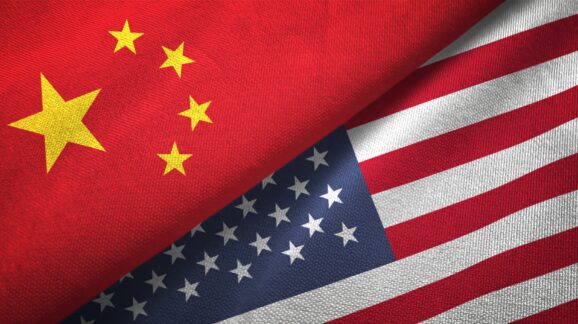Time to end China’s “developing nation” dodge on climate treaties

Photo Credit: Getty
China’s newly-appointed Special Envoy for Climate Change, Liu Zhenmin, will soon meet for the first time with his American counterpart, John Podesta. One of Liu’s stated objectives is to encourage continued American participation in the 2015 Paris Agreement, the major United Nations (UN) climate change treaty. There is no doubt that Podesta will agree to stick with this bad treaty, but there is at least one very-reasonable demand he should make in return: China should stop insisting on being considered a developing nation under the treaty.
The 1992 United Nations Framework Convention on Climate Change, the parent treaty of the Paris Agreement, classified China as a developing nation. This made perfect sense given the state of China’s economy at that time. As a result of this classification, China has had far more flexibility to set weaker targets for reducing fossil fuel-related emissions as compared to the United States and other developed nation signatories. China even qualifies for generous financial assistance from the UN to help developing nations comply – and for which US taxpayers foot part of the bill.
Fast forward to 2024, and China has now grown into the world’s second largest economy, largest exporter, and far and away the largest emitter of greenhouse gases. Yet the UN has never updated its official status as a developing nation.
The stakes could hardly be any higher. The Biden administration has committed the US to aggressive emissions reduction targets under the Paris Agreement, which helps explain why so many coal-fired power plants are being shut down and why electricity prices are rising. In sharp contrast, China is still constructing more low-cost coal generation, which, among other things, puts American manufacturers at an energy-cost disadvantage.
Congress had been slow to recognize the disparity under the treaty, but finally took action last year. Provisions were added to the National Defense Authorization Act requiring that the State Department request that the UN change China’s status on all treaties to that of developed nation.
But this is not enough. China fully recognizes the benefits of its developing nation status and will fight hard to defend them. In response to Congressional action, China’s Foreign Ministry Spokesperson Wang Wenbin angrily replied that “it’s not up to the US to decide whether China is a developing country,” and that “rather than try to figure out how to pin the label of ‘developed country’ on China, the US might want to think about how to remove its own label of a bully and hegemon.” It is safe to say that the “ask nicely” approach currently in the law will not get China’s status changed under the Paris Agreement.
President Trump wisely withdrew the US from the Paris Agreement, recognizing that it offers America bottomless economic pain for no environmental gain. The advantage handed to China under the treaty makes this bad deal even worse. Nonetheless, Biden got us back into the Paris Agreement, and absent a change in administrations, Liu need not fear the US pulling out again.
Even so, the low hanging fruit is practically smacking Podesta in the face – if only this administration weren’t so averse to playing hardball with China. He ought to make clear to China that it can no longer hide behind its developing nation classification under the Paris Agreement, or the US will reconsider its costly obligations as a developed one.